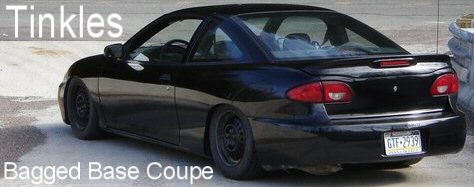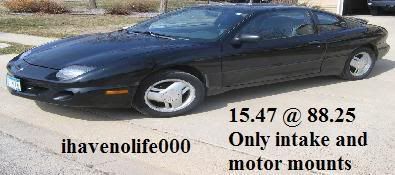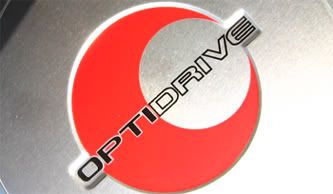A. just standard compressed air
B. Nitrogen
C. Helium <<< does anyone think this could of any impact?

Helium will actually make your car lighter. Less rotating mass. It'll make a stock Z/24 run 12s.
Yea right.

I recall an episode of Mythbusters where they tested the theory that helium in a football would improve kick distance. The effect was insignificant, and I suspect the same is true here.
The problem is that you aren't actually changing the mass of the car, nor the difficulty of setting it into motion (the inertia). Conceivably,
if you could find space for enough helium to make a car measurably "lighter", all you would do is reduce vehicle down-force and traction.
As far as the benefits of nitrogen over air, I don't feel they are significant for the average driver. I wouldn't turn it down at no extra charge though.


Shop Manuals, Brochures:
www.kenmcgeeautobooks.com
there is a difference between nitrogen and air no idea on helium
my new toyota came with Nitro tires i was like wtf is that? the only main advantage is there is next to 0 to worry about unless you puncture your tire. Nitrogen doesnt apparently lose its volume in temperature change, they figured by the math i would get an extra year outta my tires with my driving. Well those tires lasted about 3 weeks before the 19's went on but it seems to make sense.

ill stick to air. if i go to the track, drop the pressure, go grab my tank, air it back up, go home. done.

^you can still do that with nitrogen though. have em fill them with nitrogen, drop the pressure when you go to the track, then you can fill back up with air. nitrogen and some air can be mixed.

The only reason people use nitrogen in their tires is for temperature changes. Race cars use nitrogen because when the nitrogen heats up, it doesn't expand as much as regular air would. I don't see the need for it on our cars, unless you were running an enurance race or something. But I would just stick to regular air.

ihavenolife000 wrote:The only reason people use nitrogen in their tires is for temperature changes. Race cars use nitrogen because when the nitrogen heats up, it doesn't expand as much as regular air would. I don't see the need for it on our cars, unless you were running an enurance race or something. But I would just stick to regular air.
its also more dense than regular compressed air, and as such, doesnt leak out as readily.
 JBO Stickers! Get yours today!
JBO Stickers! Get yours today!
i was told it helps with tire life too

another big reason for Nitrogen now days is because of tire pressure monitoring. TPMS is standard on EVERYTHING now, it became a law everything 2008 and newer must come equipt with it. Like listed above, it leaks out less and its more steady during temperature changes, which keeps TPMS happy.

neither one is better. dont get caught up in the hype/
Even the nitrogen pushers have backed down on their claims because it is slowly being show that the nitrogen inflation isnt as great as it was made out to be. My tires loose maybe 2 PSI between oil changes an i just use air from teh gas station pump, or that one time i use a bicycle pump.

mitdr774 wrote:Even the nitrogen pushers have backed down on their claims because it is slowly being show that the nitrogen inflation isnt as great as it was made out to be. My tires loose maybe 2 PSI between oil changes an i just use air from teh gas station pump, or that one time i use a bicycle pump.
had mine filled with nitrogen for a year now, had probly 3 oil changes, no pressure change at all.

i dont understand how many times this has been discussed...
here is a quick little FAQ on it:
Is Nitrogen better?
thats up to you. some people find it a pain in the ass since it is only available at certain places.
What are the benefits?
- LESS pressure fluctuation with temperature change. it isnt completely gone, but minimized.
- More dense than air, less likely to leak out of tires at the same pace as "normal air"
- because of these two reasons, you generally dont have to check your tire pressure as often. it is recomended that tire pressures with "normal air" get checked once a month, right? well not that many people actually do that, so this is one of the reasons why nitro is popular.
- Less moisture content (generally). this leads to less of a chance of your rims corroding between the bead of the tire and rim (rim leak).
Whats the difference if air is 70% nitrogen anyways...?
ALOT! nitrogen inflation is only beneficial if the tire is inflated with 97% nitrogen or greater. anything less, then you might as well use regular air.
Can air and nitrogen be mixed?
Yes, you just loose the benefits of nitrogen inflation. if your nitro pressure is low (ex. tire puncture, rim leak), then by all mean top up with regular air. next time your vehicle is getting serviced where nitro is available, ask them to "swap" the nitro in that specific tire. this means, removing all ( or as much as possible) of the air/nitro mix in the tire and re-inflate it with nitrogen.
thats a very quick FAQ, but covers the basics.

1997 Cavalier Z24 - 15.647 @ 88.02 MPH











